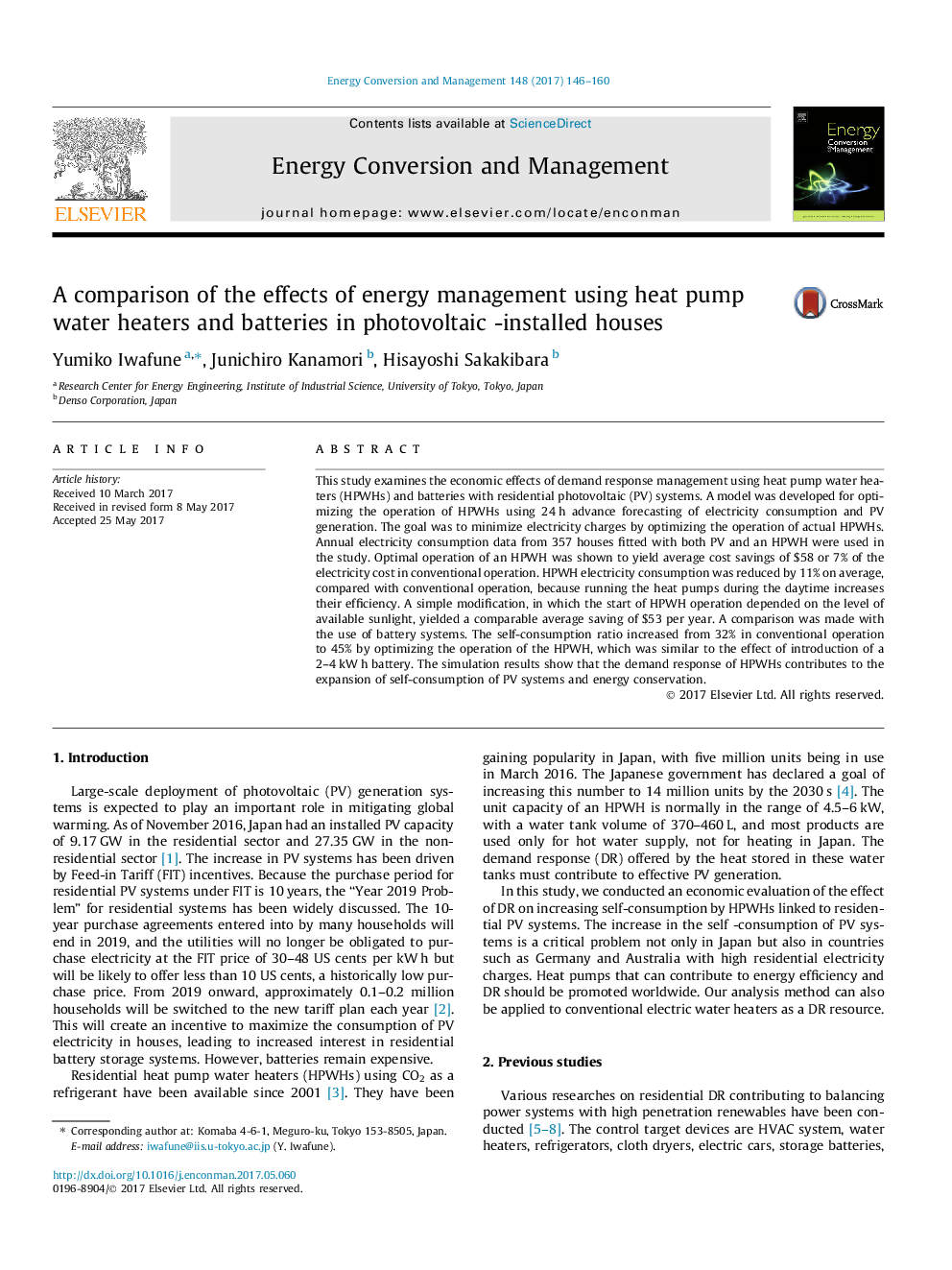| Article ID | Journal | Published Year | Pages | File Type |
|---|---|---|---|---|
| 5012523 | Energy Conversion and Management | 2017 | 15 Pages |
Abstract
This study examines the economic effects of demand response management using heat pump water heaters (HPWHs) and batteries with residential photovoltaic (PV) systems. A model was developed for optimizing the operation of HPWHs using 24Â h advance forecasting of electricity consumption and PV generation. The goal was to minimize electricity charges by optimizing the operation of actual HPWHs. Annual electricity consumption data from 357 houses fitted with both PV and an HPWH were used in the study. Optimal operation of an HPWH was shown to yield average cost savings of $58 or 7% of the electricity cost in conventional operation. HPWH electricity consumption was reduced by 11% on average, compared with conventional operation, because running the heat pumps during the daytime increases their efficiency. A simple modification, in which the start of HPWH operation depended on the level of available sunlight, yielded a comparable average saving of $53 per year. A comparison was made with the use of battery systems. The self-consumption ratio increased from 32% in conventional operation to 45% by optimizing the operation of the HPWH, which was similar to the effect of introduction of a 2-4Â kWÂ h battery. The simulation results show that the demand response of HPWHs contributes to the expansion of self-consumption of PV systems and energy conservation.
Related Topics
Physical Sciences and Engineering
Energy
Energy (General)
Authors
Yumiko Iwafune, Junichiro Kanamori, Hisayoshi Sakakibara,
